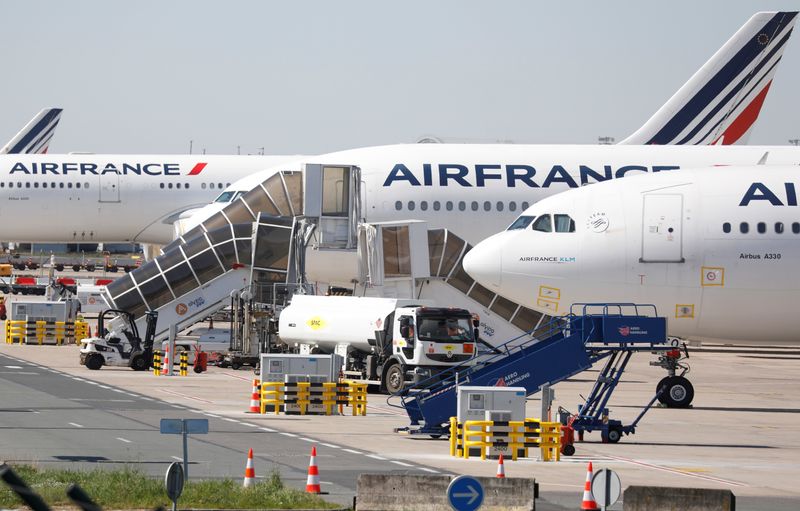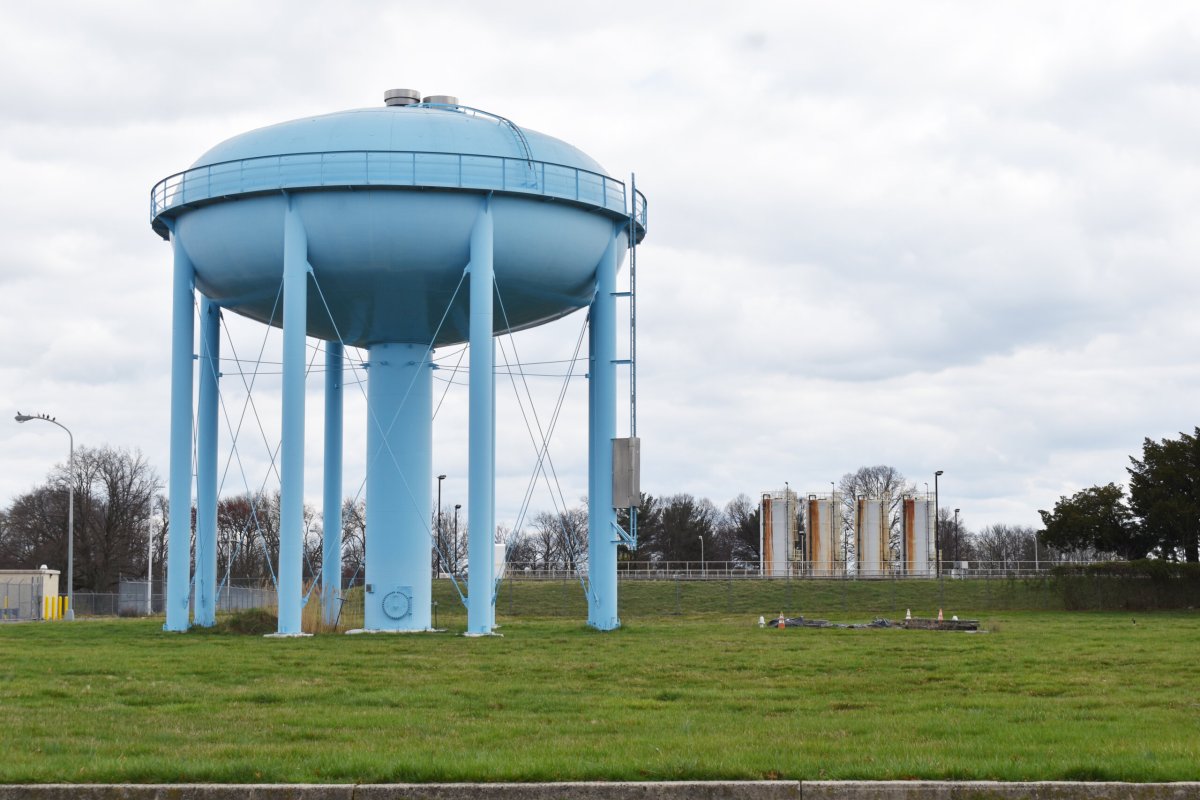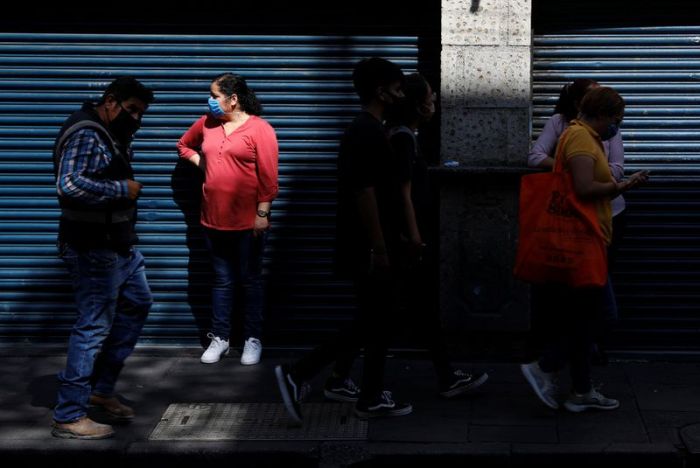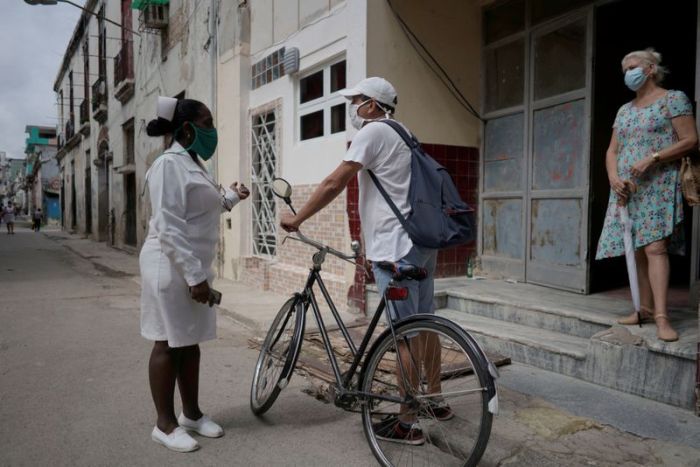PARIS (Reuters) – France launched what it billed a 15-billion-euro ($17 billion) support plan for its aerospace industry on Tuesday, accelerating research on a green jetliner and warning 100,000 French jobs could be lost due to the coronavirus crisis.
The plans – which include 7 billion euros of aid already awarded to Air France <AIRF.PA> and bring forward some defence spending – involve a joint effort by government and industry to keep French jobs and prepare the next generation of civil jets.
The plans include a 1-billion-euro investment fund with an initial capital of 500 million euros, partly financed by planemakers Airbus <AIR.PA> and Dassault Aviation <AVMD.PA>, engine maker Safran <SAF.PA> and systems firm Thales <TCFP.PA>.
“We must save our aerospace industry,” Finance Minister Bruno Le Maire said, adding Europe – championed by Airbus – would not sacrifice its place on the world market to U.S giant Boeing <BA.N> or China’s upcoming planemaking competitor COMAC.
The move comes after Boeing called for tens of billions in loan guarantees to help U.S. suppliers. Both Airbus and Boeing buy parts in each other’s home markets and fragile suppliers are seen as an Achilles heel as manufacturers weather the crisis.
It was not immediately clear how much of the pledged public-private money was new, however. One person close to the talks acknowledged it involved a certain amount of “packaging,” though Le Maire insisted only the Air France aid was already planned.
In a sharp increase in funding for the CORAC research body, France said it would invest 1.5 billion euros over three years to support research into environmentally friendly technology.
The main goal of the investment would be a carbon-neutral successor to the A320, Europe’s best-selling jet, with hydrogen as an energy source instead of today’s oil-based gas turbines.
“Our target is to have a carbon-neutral airplane in 2035 instead of 2050, thanks especially to an (ultra-efficient) engine using hydrogen,” Le Maire said.
EXPORT CREDIT HELP
Industry executives have expressed doubts that a radical switch away from classic jet engines would be ready for service by then, though engine makers say it is one path under study.
France said it had agreed with Britain, Germany and Italy a one-year moratorium on repayment by airlines of aircraft delivery loans backed by export credit agencies – a move worth 1.5 billion euros.
The system of export credits allows airlines with weak balance sheets to raise bank funds as though they had the same creditworthiness as governments of aircraft-producing nations.
It was heavily used on both sides of the Atlantic to smooth exports during the 2008-9 financial crisis but has had a limited role in tackling the coronavirus crisis so far because the problem is mainly one of collapsing worldwide demand.
France said it would also ask the European Commission to seek loan repayment concessions worth 2 billion euros in a multinational agreement on export credits overseen by the OECD.
The “aerospace support plan” also calls for some 600 million euros of military procurement deals to be accelerated.
They include an order for three air tankers and eight Caracal helicopters from Airbus and a modified Beechcraft propeller plane for surveillance, originally ordered in 2016. France will also bring forward the purchase of naval surveillance drones.
In Toulouse, Europe’s aerospace capital which has been reeling from the crisis, unions welcomed the plan and said a meeting expected to address restructuring with Airbus had been postponed from Thursday to the end of the month, potentially pushing it beyond French local elections.
(Additional reporting by Julie Rimbert; Editing by Alexander Smith and Mark Potter)

























